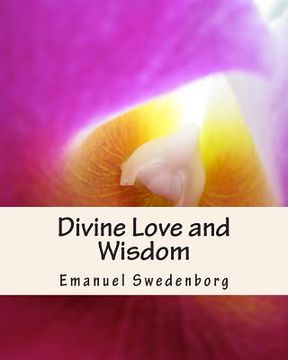Synopsis "Divine Love and Wisdom (in English)"
Emanuel Swedenborg (born Emanuel Swedberg; January 29, 1688 - March 29, 1772) was a Swedish scientist, philosopher, Christian mystic and theologian. Swedenborg had a prolific career as an inventor and scientist. In 1741 at the age of fifty-three he entered into a spiritual phase in which he eventually began to experience dreams and visions beginning on Easter weekend April 6, 1744. This culminated in a spiritual awakening, whereupon he claimed he was appointed by the Lord to write a heavenly doctrine to reform Christianity. He claimed that the Lord had opened his spiritual eyes, so that from then on he could freely visit heaven and hell, and talk with angels, demons and other spirits. He said that the Last Judgement had already occurred, in 1757, though only visible in the spiritual world, where he had witnessed it. That Judgement was followed by the Second Coming of Jesus Christ, which occurred, not by Christ in person, but by a revelation from Him through the inner, spiritual sense of the Word to Swedenborg. In fact, Swedenborg said, it is the presence of that spiritual sense that makes the Word Divine. The remaining 28 years of his life, he wrote and published 18 theological works, of which the best known was Heaven and Hell (1758), and several unpublished theological works. In Life on Other Planets, Swedenborg stated that he conversed with spirits from Jupiter, Mars, Mercury, Saturn, Venus, and the moon. He did not report conversing with spirits from Uranus and Neptune, however, which were not discovered yet. This lack is seen by some to raise question about the credibility of all his reports on this matter. This issue has been extensively reviewed elsewhere. Swedenborg explicitly rejected the common explanation of the Trinity as a Trinity of Persons, which he said was not taught in the early Christian Church. Instead he explained in his theological writings how the Divine Trinity exists in One Person, in One God, the Lord Jesus Christ, which he said is taught in Colossians 2:9. Swedenborg also rejected the doctrine of salvation through faith alone, since he considered both faith and charity necessary for salvation, not one without the other. The purpose of faith, according to Swedenborg, is to lead a person to a life according to the truths of faith, which is charity, as is taught in 1 Corinthians 13:13 and James 2:20. Swedenborg's theological writings have elicited a range of responses. However, he made no attempt to found a church. A few years after his death - 15 by one estimate - for the most part in England, small reading groups formed to study the truth they saw in his teachings. As one scholar has noted, Swedenborg's teachings particularly appealed to the various dissenting groups that sprang up in the first half of the 19th century who were "surfeited with revivalism and narrow-mindedness" and found his optimism and comprehensive explanations appealing Several writers were influenced by him, including William Blake (though he ended up renouncing him), Elizabeth Barrett Browning, August Strindberg, Ralph Waldo Emerson, Charles Baudelaire, Adam Mickiewicz, Honoré de Balzac, William Butler Yeats, Sheridan Le Fanu, Jorge Luis Borges, Carl Jung and Helen Keller. Other notable figures who were adherents to his teachings were the theologian Henry James Sr., the artist George Inness, and mid-Western pioneer and nurseryman Johnny Appleseed. His philosophy had a great impact to The Duke of Sodermanland, later King Carl XIII, who as the Grand master of Swedish Freemasonry (Svenska Frimurare Orden) built its unique system of degrees and wrote its rituals. In contrast, one of the most prominent Swedish authors of Swedenborg's day, Johan Henrik Kellgren, called Swedenborg "nothing but a fool". A heresy trial was initiated in Sweden in 1768 against Swedenborg's writings and two men who promoted these ideas.

